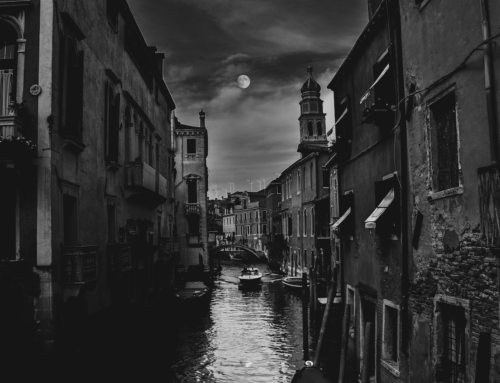The felicity of this life consisteth not in the repose of a mind satisfied. For there is no such finis ultimus (utmost aim) nor summum bonum (highest good) as is spoken of in the books of the old moral philosophers. Nor can a man any more live, whose desires are at an end, than he whose senses and imaginations are at a stand. Felicity is a continual progress of desire, from one object to another, the attaining of the former being still but the way to the latter.
—Thomas Hobbes, Leviathan, 1668
The conception of felicity proposed above, while opposed to the inherited wisdom of two millennia of moral philosophy, says something significant about the way in which man experiences the animating effect of desire and the inevitability of its frustration. Hobbes argues that since the summum bonum cannot be grasped in this life, it cannot provide a guide to man’s action. If God cannot be grasped here and now, we should not pretend that He is relevant to man’s desires, or that He could provide a solid foundation for a moral theory based on man’s pursuit of happiness.
Notice what happens, however, once man’s final end is removed from moral consideration. With no hope of rest, he finds himself trapped in an ineluctable cycle of unfulfilled desire. Desire progresses from one object to another until one’s strength fails and life comes to an end. Thus, Hobbes concludes that it belongs to mankind to have “a perpetual and restless desire of power after power, that ceaseth only in death.” The logic of this anthropology foreshadows the bold nihilism of Neitzsche, who proclaims in his flamboyant, prophetic style that God is dead and that all moral claims are mere disguises for man’s unquenchable will to power.
What are we to make of Hobbes? We must acknowledge that there is some truth to his claims. In this life perfect felicity is not possible. St. Thomas Aquinas says as much, as do “the books of the old moral philosophers.” It is also true that man cannot live his bodily life without heeding his natural inclinations—his desire for food, for instance. But Hobbes goes further than this by equating life with desire itself. For Hobbes, life, the animating principle of man by which he acts in the world, simply is desire.
This notion is alive and well in our culture today. It is seen in the fear of commitment, the guarding of possibilities, and the ceaseless nurturing of one’s own potential. To limit one’s potential by fidelity to some person, place, or profession is seen as life-inhibiting precisely because it narrows the ambit of desire. In this way, man’s soul becomes twisted into a paralyzing self-embrace, his arms bound in the straitjacket of boundless desire. One who desires everything can in fact do nothing.
But if it is true that man cannot act without desire, and if life is the principle of man’s action, then it seems that we must conclude with Hobbes that life is in fact nothing other than desire. How can one escape the logic of his argument?
We can escape it by realizing that life and action are not for their own sake but for the sake of something greater. We do not live just to live, nor act just to act, but rather to strive for something or someone that we do not yet fully enjoy. The cure for the endless cycle of desire is to have our desires ordered to what is truly good for us, and then to enjoy that good forever. Enjoyment is not the end of desire, but its resting place; it is not its demise, but its fulfillment.
Man really comes to possess goods, and enjoy them rightly, not through sheer power, as Hobbes imagines, but rather through the faculties of his soul, which are ordered to two things: love and contemplation. By love man goes out of himself, and is in a manner united to his beloved; he affirms the very existence of the beloved, and finds rest and enjoyment in his or her presence. By contemplation man gazes with delight on that which he loves; he receives its being in the depths of his soul, knowing and enjoying the truth of that which reflects the eternal Being of God. In short, through love and contemplation man’s soul embraces that which transcends the immanence, and satisfies the restlessness, of his own desperate yearnings.
If all desirable goods were reducible to material goods, then a Hobbesian anthropology would be inevitable, but thankfully we do not find ourselves trapped in such a prison of a universe. Spiritual goods are real, and we can truly possess and enjoy them. Even here on earth, He who is our Summum Bonum grants us an imperfect foretaste of his perfect Goodness. Of course, growing in the virtue that enables us to see and desire spiritual goods—transcending the immediacy of one’s selfish desires—does involve a certain transformation and death to self. But if life is only what Hobbes makes it out to be, then let it die, for “truly, truly, I say to you, unless a grain of wheat falls into the earth and dies, it remains alone; but if it dies, it bears much fruit” (John 12:24).
✠
Photo by Mitchel Lensink on Unsplash







